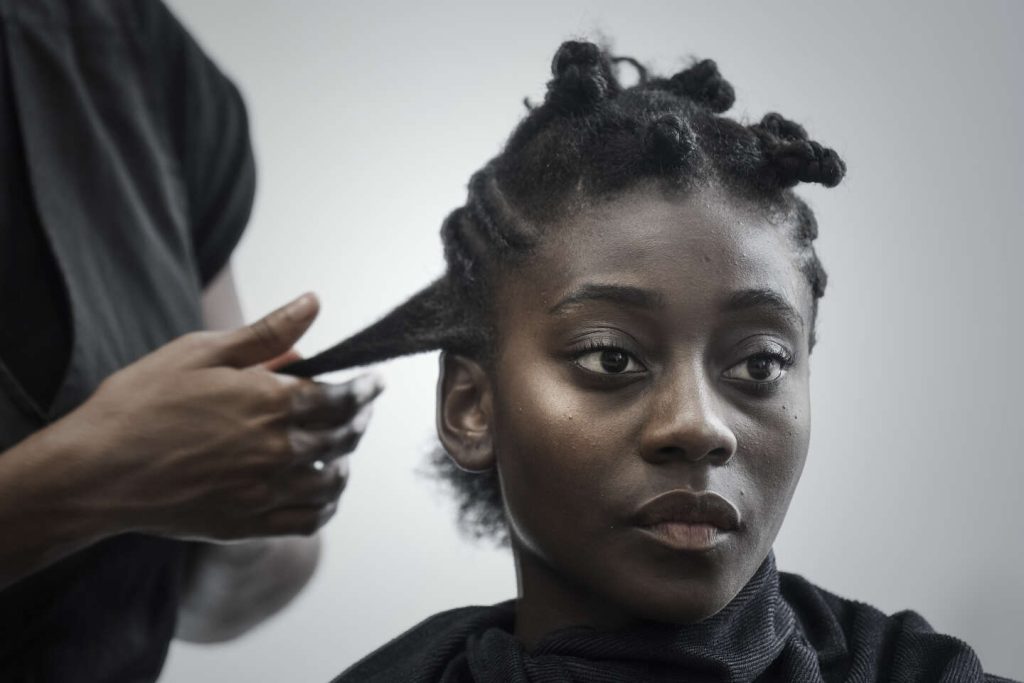In the Boucles d’Ebène salon owned by Aline Tacite in Bagneux (Hauts-de-Seine), in October 2017, Kenza Bel Kenadil had her first hair straightening treatment at the age of 6. This marked the beginning of thirteen years of straightening her hair using irons or chemical processes. This was a way for her to combat the harassment she faced at school because of her hair texture, including hands in her hair or pens being stuck without her consent, as well as insults. In her professional life, she recalls an employer once asking her to either go home and change her hairstyle or not work at all because her hair was only half tied back, unlike a colleague with straight hair.
Kenza Bel Kenadil, now a militant against hair discrimination, decided seven years ago to stop using straighteners or relaxers. On Instagram, she is followed by nearly 260,000 people, mostly non-white women who turn to her to denounce employers’ demands regarding their haircuts. To address such experiences, MP Olivier Serva introduced a bill that aims to penalize discrimination based on the cut, color, length, or texture of hair in the labor code, penal code, and civil service general code. This law aims to provide legal recourse for victims of hair discrimination and prevent employers from forcing employees to change their natural hair.
Olivier Serva believes that this law would give victims of hair discrimination the legal framework they need, highlighting a case of an Air France steward who had to fight for ten years in court to prove discrimination based on his braided hair. While the US has laws specifically addressing this form of discrimination, the French text under examination in the National Assembly does not explicitly mention racism. In France, the debate around discrimination tends to focus on hair rather than its racial implications, which is concerning for many, especially Black women whose hair is often the target of discrimination.
Douce Dibondo, author of “La Charge raciale: vertige d’un silence écrasant”, believes that hair discrimination, particularly against Black women, affects their access to institutions like work and housing. The pressure to conform to white standards of hair is rooted in a racist colonial perception of Black bodies. Aude Livoreil-Djampou, owner of Studio Ana’e, a Parisian hair salon specializing in curly and kinky hair, notes that while many clients still report discrimination for their natural hair, there has been a decrease in requests for straightening treatments due to the harmful effects of such products.
After years of straightening her hair to fit in, Fatou N’Diaye, founder of the Blackbeautybag blog, decided to embrace her natural hair by doing a “big chop” to transition back to her kinky hair. This was a way for her to challenge societal standards of beauty and intelligence that are often tied to hair texture. However, this self-affirmation can come with risks, especially in professional settings where individuals may face discrimination for their natural hair. Despite efforts to combat hair discrimination through legislation like Olivier Serva’s bill, challenges remain in addressing systemic injustices that affect individuals based on their appearance.


